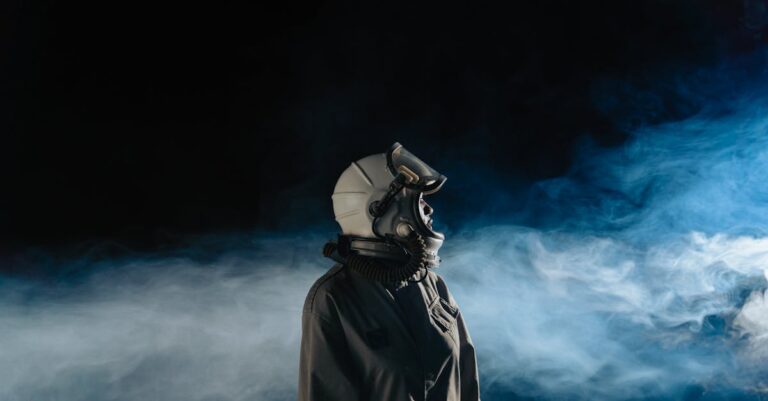
Clara Whitaker stepped off the creaking schooner onto the dock, her boots sinking into the damp planks as the briny air stung her lungs. The port of San Francisco reeked of salt and smoke, a cacophony of shouts and clinking coins drowning out the gulls. She adjusted her bonnet, fingers brushing the faded ribbon tied to her wrist—a keepsake from her brother, Elias, who’d vanished two years prior in the Sierra foothills. The letter he’d sent before silence fell was still tucked in her satchel, its ink smudged by rain and worry.
The streets pulsed with a feverish energy. Men in soot-streaked overalls haggled over mules, while women in frayed dresses hawked dried fruit and pickled cabbage. Clara’s gaze flicked to the hills beyond the bay, where the Sierra Nevada loomed like a slumbering beast. She’d read of the gold strikes there, of men who’d struck it rich overnight. Elias had written of a claim near Placerville, a place called Dutch Flat. If he was alive, that was where she’d find him.
The journey west was a gauntlet of dust and exhaustion. Clara rode in a wagon with a group of prospectors, their faces etched with sun and determination. Among them was Thomas Greer, a grizzled miner with a scar splitting his lip. He’d taken her under his wing, offering her a share of his campfire rations. “You’re not cut out for this,” he muttered one night, tossing her a chunk of hardtack. “But you’re stubborn enough to survive.” She didn’t argue. The alternative was to return east, where the mill had closed and the townsfolk whispered about her father’s debts.
When they reached Dutch Flat, the town was a patchwork of tents and log shanties, its main street a mire of mud and horse dung. Clara’s boots squelched as she wandered the perimeter, her eyes scanning for any sign of Elias. A boy no older than ten approached, his face smudged with soot. “You look lost,” he said. “Ain’t no gold in the air, ma’am. You gotta dig for it.” She smiled, though the words tasted bitter. The boy’s name was Sam, and he became her guide, leading her to the river where miners panned for flecks of yellow.
The work was backbreaking. Clara’s hands blistered as she scooped gravel into her pan, the cold water biting through her gloves. Thomas taught her to tilt the pan just so, watching for the glint of gold that shimmered like trapped sunlight. “It’s not about luck,” he said one afternoon, his voice low. “It’s about patience. The river doesn’t care how hungry you are.” She believed him, though doubt gnawed at her ribs. Every evening, she pored over Elias’s letter, tracing the ink with her thumb. *I’m close to something big,* he’d written. *But the land here… it’s not kind.*
Then came the fire. It started in the timber camp, a spark catching the dry brush. By dawn, the town was a smoldering ruin, its tents reduced to ash. Clara stumbled through the chaos, her satchel clutched to her chest. Thomas shouted above the crackling flames, his face streaked with soot. “We’re leaving! Now!” But she couldn’t abandon the camp. The gold—her only hope of finding Elias—was buried in the riverbed, untouched by the inferno.
She returned to the river hours later, the air still thick with smoke. The water ran colder than before, its surface reflecting the bruised sky. As she crouched to pan, a glint caught her eye—a shard of yellow nestled in the gravel. Her breath hitched. This was it. The proof that Elias had been here, that he’d left something behind. But as she reached for it, a voice cut through the haze.
“You shouldn’t be here alone.” A woman stood at the edge of the bank, her dark hair braided with feathers. Her eyes, sharp as flint, studied Clara. “Who are you?” Clara asked, rising slowly. The woman’s name was Yara, a member of the local tribe who’d seen the fire from her village. “The river’s not safe anymore,” Yara said. “The land remembers. And it doesn’t forgive.” Clara didn’t believe in omens, but the warning lingered as she returned to the camp, the shard of gold now a weight in her pocket.
That night, Thomas found her by the fire. “You’ve got that look,” he said, nodding at the gold. “Like you’ve seen a ghost.” She didn’t answer. Instead, she told him about Elias, about the letter and the search. Thomas’s expression darkened. “I knew him,” he admitted. “He was a good man, but this place… it changes people. You think he’s alive?” Clara shook her head. “I don’t know. But I have to find out.” Thomas sighed, rubbing his temples. “Then you’ll need more than luck. The mines are dangerous, and not just because of the earth. There’s a man named Hargrove who controls the claims. He doesn’t take kindly to strays.”
The next morning, Clara set out alone, following the river’s course toward the mountains. The trail was treacherous, the rocks slick with rain. She slept in hollows beneath boulders, her dreams haunted by Elias’s face—smiling, then screaming. On the third day, she found the camp. It was abandoned, the tents torn open, the fire pit cold. But in the dirt, she spotted a bootprint, large and worn. Her pulse thundered. This was his. She dug through the ashes, her fingers brushing against a rusted pocket watch. The engraving inside was barely visible: *E. W.*
As she clutched the watch, a sound echoed through the trees—a branch snapping, then silence. Clara froze. A figure emerged from the shadows, his face obscured by a scarf. “You shouldn’t be here,” he said, his voice low. “Who are you?” she demanded. The man stepped closer, and in the dim light, she recognized him. It was Elias. Or at least, the man who’d once been her brother. His eyes were hollow, his hands shaking. “I tried to leave,” he whispered. “But the land… it won’t let go.” Clara’s heart seized. The gold had taken him, just as it had taken so many before. She reached for him, but he backed away, vanishing into the trees as quickly as he’d appeared.
That night, Clara sat by the fire, the pocket watch clutched to her chest. The gold she’d found was a fraction of what she’d hoped for, but it was enough to buy passage back east. Yet as she stared into the flames, she knew she couldn’t leave. The Sierra had claimed Elias, but it had also given her something—a purpose. She would stay, not for gold, but for the land itself, and the stories it held. The river would continue to run, and so would she.


